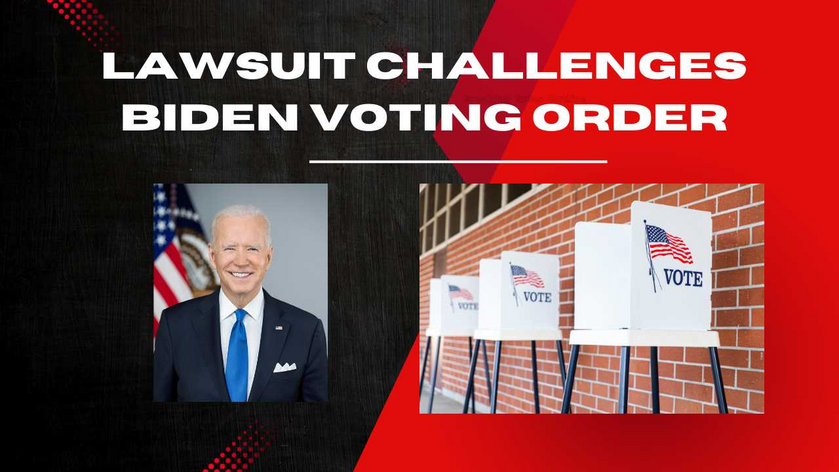Lawsuit Filed Against Biden Over Voting Order
Amarillo, Texas - A group of people, including some lawmakers and state officials, is suing President Joe Biden and his administration over a new voting order. They say the order, called Executive Order 14019, goes too far and breaks the rules.
What's the Issue?
The America First Policy Institute (AFPI) and others claim the order unfairly helps the Democratic Party. The order asks federal agencies to create programs to get more people to register and vote. The plaintiffs argue this is the job of the states, not the federal government.
Who's Involved?
The people suing include Congressman Ronny Jackson, Congresswoman Beth Van Duyne, former Texas Representative Matthew Krause, Ohio Secretary of State Frank LaRose, and Wisconsin Deputy Clerk Suzanne Pinnow. They say the order forces federal agencies to spend taxpayer money on voter programs that benefit Democrats.
What Are They Saying?
“The Biden Administration’s desperation to unfairly and illegally win the election knows no bounds," said Rep. Ronny Jackson (TX-13). "Instead of instilling policies that Americans want and need, they turn to the well-oiled DC swamp filled to the brim with deep state loyalists to illegally register voters in an attempt to help them win. I am proud to lead this lawsuit with AFPI to once again hold the Biden administration accountable for illegally weaponizing the federal government.”
“The Biden Administration is once again weaponizing federal agencies, this time to steer taxpayer resources to liberal activist groups who want to sway the election,” said Frank LaRose, Secretary of State of Ohio. “This is a cynical attempt to turn government agencies into a Democratic turnout machine, and it’s wrong. That’s why I’m joining this lawsuit and working to hold the administration accountable.”
“We are pushing back on Biden’s unlawful attempt to weaponize federal agencies into a leftwing election operation that opens the doors to noncitizen voting and all manner of lawbreaking,” said Ken Blackwell, AFPI Chair of the Center for Election Integrity. “Congress has not authorized or funded any of this, so we seek a court order to stop it by simply enforcing federal law. The America First Policy Institute continues to lead the way in making it easy to vote but hard to cheat.”
“Unless we put a stop to this unlawful EO, the Biden Administration and its far-Left allies will convert every federal agency into a partisan voter registration machine,” said Mike Berry, AFPI Executive Director of the Center for Litigation. “What the Biden Administration could not accomplish by lawful means it has forced upon the American people by executive fiat.”
What's the Law?
The lawsuit says that states should run their own elections. The U.S. Constitution allows the federal government to set rules for federal elections but leaves most election responsibilities to the states. The plaintiffs believe Biden’s order breaks this rule and makes it harder for states to manage their elections.
Click here to read entire lawsuit.
What Do They Want?
The plaintiffs want the court to stop the order from being carried out. They argue it oversteps federal authority and makes it easier for noncitizens to vote, which could change the results of close elections.
Conclusion
This lawsuit is a big challenge to Biden’s efforts to increase voter registration and participation. The case will likely lead to more debates about the roles of state and federal governments in elections and the limits of presidential power in setting election rules.
For more details, you can read the full complaint filed in the United States District Court for the Northern District of Texas, Amarillo Division, under Civil Action No.: 2:24-cv-152.




















